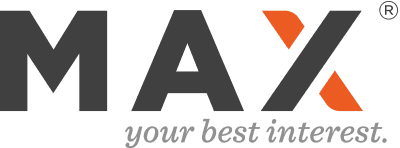
MaxMyInterest founder Gary Zimmerman discusses why investors hold cash with Morningstar’s Christine Benz.
Do you hold cash in your portfolio? Of course you do. It’s the universal asset class. Everyone needs some degree of cash to manage their monthly expenses: homes, automobiles, tuition, travel, dining and entertainment. But how much cash is enough cash? Should you hold cash beyond what you need on a monthly basis? And how much are you earning on the cash portion of your portfolio?
For most high net worth investors, the bulk of their portfolios are comprised of domestic and international equities, tax-advantaged fixed income instruments, real estate, commodities and alternative investments like private equity, hedge funds or real assets. Yet today, cash represents a substantial portion of the portfolios of both individual investors and family offices. Most of it is earning next to nothing.
Forbes Magazine contributor Jim Cahn recently cited a study by US Trust that found that “one-fifth of all high net worth individuals (with $3 million or more in investable assets) are holding more than 25% of their portfolio in cash.” This is consistent with our anecdotal conversations with individual investors and family offices. Sure, we occasionally run into investors who hold virtually no cash, choosing to margin securities when they buy a car or pay tuition. But most investors do keep a meaningful cash allocation. One family office we know is 100% in cash – to the tune of $250 million.
For most investors, having a sizable cash cushion helps them manage both personal and portfolio risk. As I discussed in a recent interview with Christine Benz at Morningstar, we all remember the depths of the financial crisis. Most investors prefer to have a cash cushion to withstand economic swings. They also like to have on hand some “dry powder” that can profitably deployed, so that they can, in the words of Warren Buffett, “be greedy when others are fearful.” Cash can serve not only as a hedge, but also as a strategic reserve.
Among the most conservative investors are investment bankers, many of whom hold seven figures in cash. Working in a volatile industry, where layoffs accompany each business cycle, it makes sense to hold a rainy-day fund in cash. Law firm partners are similar. One leading private banker told me his white-shoe law firm clients tend to hold between $1 million and $3 million in cash, with one client holding a staggering $20 million, all earning no more than 0.30%. Whether that reflects inertia or a deliberate allocation doesn’t matter – what matters is how clients invest that cash, to ensure it doesn’t unduly drag down the returns of the entire portfolio.
At Max, we don’t take a view on how much cash investors should hold – each individual is different, and should consult with his or her financial advisor to determine what’s prudent. However, for whatever portion of your portfolio that you’ve chosen to hold in cash, you ought to earn as much as possible on it, while ensuring that it is safe, insured, and accessible when you need it.
MaxMyInterest is a cash management solution that helps investors earn substantially more on their cash, while keeping it safe. Max members are today earning a weighted average 0.89% on their cash, held in their own accounts at leading FDIC-insured online banks such as American Express, Barclays and GE Capital. As interest rates change, Max automatically reallocates cash to help ensure its members benefit from the best rates available. Best of all, Max members need not change the way that they interact with their existing checking account, so direct deposit, bill pay, and access to tellers and notaries remain unchanged.
An incremental 0.80% of return can be meaningful, particularly when compounded over time. Savvy investors know that it’s important to monitor every aspect of portfolio risk and return. With Max, investors can generate incremental return without incremental risk, the holy grail of investing. So, much like you wouldn’t put up with a mutual fund that consistently underperformed the market by 0.80%, no longer should you suffer such a fate from cash.
We’re all busy, and focusing on cash often falls to the bottom of the To Do list. However, Max was designed so that – after a one-time setup – you never have to think about your cash again. You can just sit back, knowing that the cash portion of your portfolio is optimally invested in your own FDIC-insured bank accounts.
- 2023 Year in Review and Outlook for 2024 - December 18, 2023
- Five Reasons to Rethink Money Market Funds - August 27, 2023
- The Mistake Nearly Everyone Is Making With Their Cash - April 23, 2023
